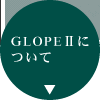予定表 -詳細情報-
| 件名 | LS Ting Jiang氏 |
| 開始日時 | 2010年 10月 19日 (火曜日) 12時15分 (GMT+09:00) |
| 終了日時 | 2010年 10月 19日 (火曜日) 12時50分 (GMT+09:00) |
| 場所 | 1号館310教室 |
| 詳細 | 【日時】:2010年10月19日(火)12:15-12:50 【場所】:1号館 310教室 【報告者】:Ting Jiang (GLOPE II国際研究員/ PhD Student, Tilburg University) 【タイトル】:Culture, Other-regarding Preferences and Corruption 【概要】: Corruption problem can be, to a large extent, understood with insights gained based on the self-regarding payoffs maximizing economic agents. However, more understandings can be obtained if we relax the assumption of self-regarding to incorporate other-regarding preferences. Positive other-regarding preferences can enhance cooperation even without effective law enforcement. However cooperation has its two sides, i.e., it can result in either positive or negative externalities, e.g., corruption is the type of cooperation that will lead to social welfare loss. Although other-regarding preferences and their characteristics as caring self more than others, family members and friends (or other in-group members) more than strangers (out-group members) are likely to be innate in all human beings, the degree of how much one cares more about self than others, in-group members than out-group members evolve over time and interact with the environment, such as culture. I hypothesize that characteristics of ORPs are embedded in culture and differ systematically from one society to another in terms of the level of individualism, the level of particularism towards in-group members. These characteristics can facilitate corruption, for instance, in the following way: particularism creates on one hand a “moral”justification for favoritism, on the other hand, the a posteriori enforcement of corrupt contracts. In my presentation, i will present some of the pilot experiment results and I also hope to collect some feedbacks on my revised experiment design. |
| カテゴリー | 政治経済学基礎セミナー・ランチタイムセミナー |








